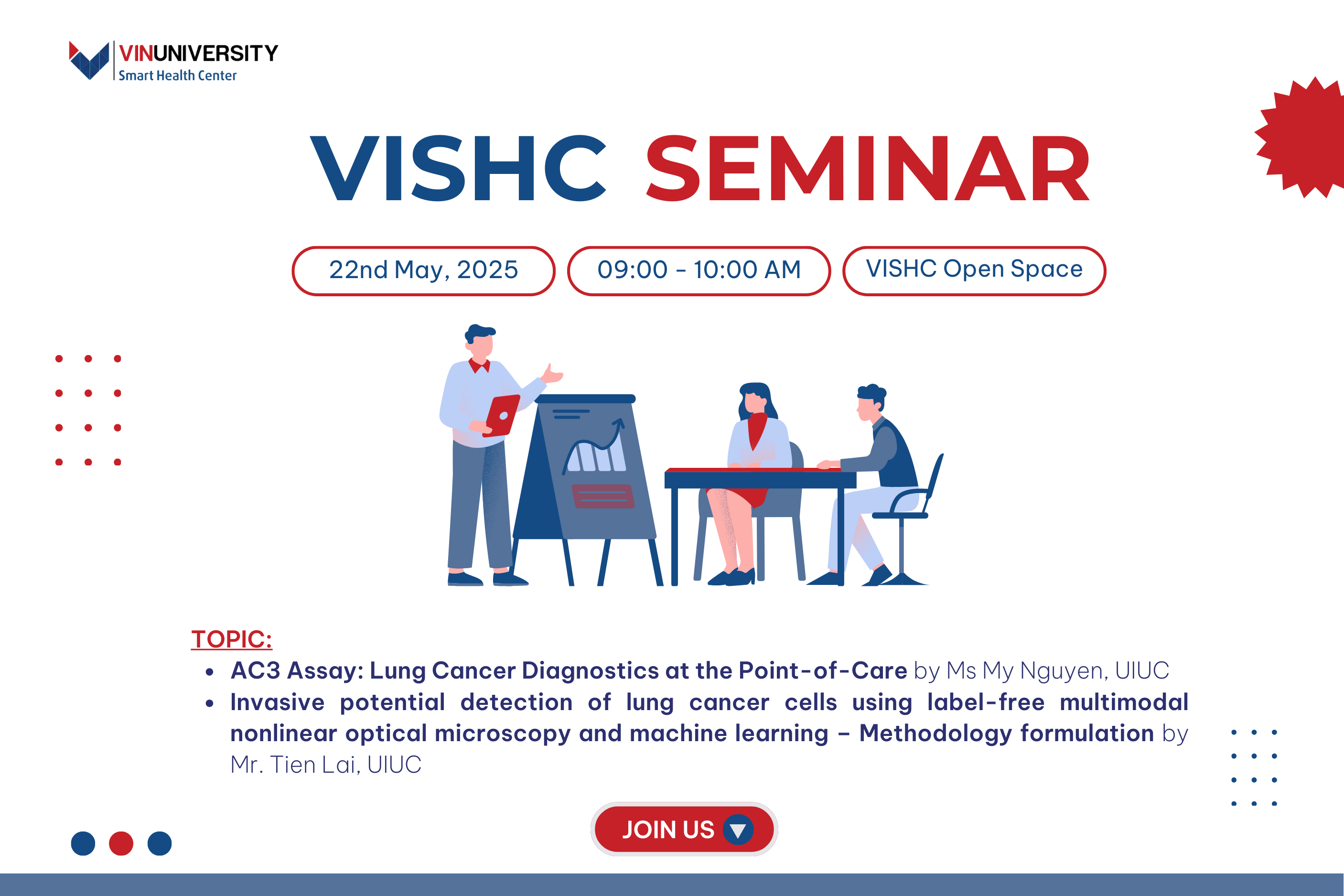
📅 Date: Thursday, 22nd May, 9 AM – 10 AM (Hanoi, GMT +7)
🛎 Format: Offline
📍 Venue: VinUniversity, VISHC Open Space
📣 Topic:
1️⃣ AC3 ASSAY: LUNG CANCER DIAGNOSTICS AT THE POINT-OF-CARE
📌 Speaker: Ms My Nguyen, PhD Student at UIUC
💡 Abstract: Timely and accurate cancer diagnostics are critical for guiding effective treatment decisions; however, current methods are often limited by high cost, long turnaround times, and limited accessibility. Our project, Activate Cleave Capture & Count (AC3), addresses these challenges by integrating CRISPR-Cas12a-based detection, magnetic nanoparticle-assisted enrichment, and photonic crystal biosensors into a portable diagnostic platform. AC3 enables highly sensitive, single-nucleotide resolution detection of circulating tumor DNA (ctDNA) from blood samples – without the need for PCR amplification or complex instrumentation – offering a rapid, low-cost solution suitable for clinical and resource-limited settings.
2️⃣ INVASIVE POTENTIAL DETECTION OF LUNG CANCER CELLS USING LABEL-FREE MULTIMODAL NONLINEAR OPTICAL MICROSCOPY AND MACHINE LEARNING – METHODOLOGY FORMULATION
📌 Speaker: Mr Tien Lai, PhD Student at UIUC
💡 Abstract: Lung cancer remains the leading cause of cancer-related deaths globally, driven largely by its high metastatic potential. Central to this metastatic process is the epithelial-mesenchymal transition (EMT), during which epithelial cells lose polarity and adhesion while acquiring mesenchymal properties that enhance invasiveness. Detecting EMT early in lung cancer progression is critical for improving therapeutic response and patient survival, as it is closely linked to resistance to chemotherapy and immunotherapy. Conventional methods—such as brightfield microscopy, immunoblotting, and immunohistology—have been used to track EMT marker expression, often following induction with transforming growth factor beta (TGF-β). However, these techniques lack single-cell resolution, limiting their utility in identifying localized invasive tumor regions. As a result, emerging diagnostic approaches aim to enable faster, more precise detection of EMT at the single-cell level, offering promising advancements in lung cancer diagnosis, prognosis, and treatment planning.
👉👉 Mark your calendar and join us this week!